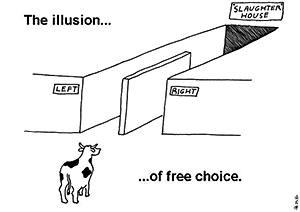| www.fidemturbare.com | ||||
 |
Social networking connections |
|||
| Home Profile Philosophy Quotations Musings Links Postcards Contact | ||||
Musings - Judgement
April 21, 2015 by Fidem Turbāre
Responses to this article:
One fleetingly possibly credible means I've encountered for scrutinizing atheism (the classification of "absence of belief in deities") seems to be a logically flawed attempt to impose a necessity on conscious individuals, upon being presented with such a notion, to render a decision concerning the idea of whether deities exist. The reason this is logically flawed, however, is that it is a bifurcation fallacy since it seems that it is not necessary for individuals to render a verdict on every idea they encounter throughout their lives:

- "It is the mark of an enlightened mind to be able to entertain a thought without accepting it."
- -- Aristotle
The reason that it might be credible is that it touches on a "not entirely known" area of neuroscience, hence it is credible as a philosophical question in the sense that it is not definitively proven or refuted. So what drives this claimed "unavoidable requirement" to render a decision on every encountered idea? Since freedom of thought also necessarily includes the freedom not to think (as some meditation efforts have been known to aspire to), then does that not provide sufficient doubt against the veracity of the logically flawed notion that a conscious, thinking mind cannot abstain from judging an idea upon encountering it?
Is it even sensible that consciousness be restricted under the auspices of such a burden to always have no choice but to direct one's thoughts to passing judgements on every idea presented? If an exemption can be made available for ideas previously judged in the minds of those who are re-encountering an idea, why not also for ideas not yet judged, or, as a seemingly simpler circumstance, for ideas with insufficient information where judgement is [at least] temporarily "put on hold" (e.g., as is routinely practised formally in courts of law that value impartiality)?
If a conscious mind is not interested in a particular idea, then simply ignoring it upon encountering it seems, perhaps, to provide but one practical example of Aristotle's "mark of an enlightened mind." A clearer example may be those who abstain from voting in an election despite awareness of who the candidates are; reasons for this may include indecisiveness, or apathy, or indifference (e.g., because none of the candidates "stand out" with any particularly redeeming qualities), etc. Regardless of whether these reasons may be "judged" as valid to someone else, they are at least minimally valid reasons in the realm of free thought (which must be free of encumbrances and restrictions where the word "free" is to be taken seriously) since even the act of judging due to the coercive nature of pressure may very well not be an optimally honest one.
Honesty is a virtue that seems to be valued by many while also being considered rare by some, and the freedom to judge or not to judge is an essential aspect of free thinking and the formation of opinions (as needed). When the options for opinions are restricted to an arbitrary set of choices, then honesty is hindered because the free will of the individual is limited, for they do not have the option to express how they truly feel about something if their desired choice is included in an imposing list of "forbidden thoughts."
This tyranny against enlightened minds, it seems, is ultimately where such bifurcated ideals that contradict Aristotle's "mark" of optional judgement has the potential to coercively mislead the world astray and inhibit progress that flows naturally from the potential ingenuity, inventiveness, and creativity proffered by free thought - judge, if you want to, for the freedom is yours.